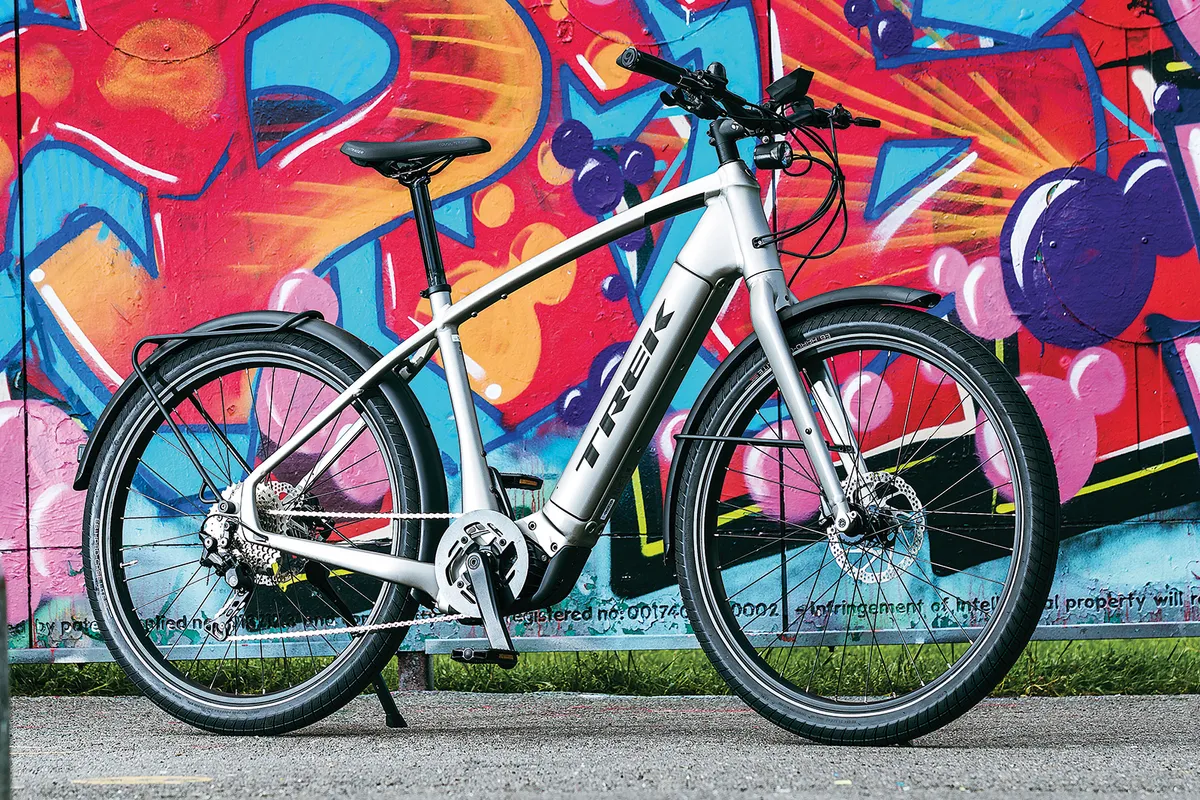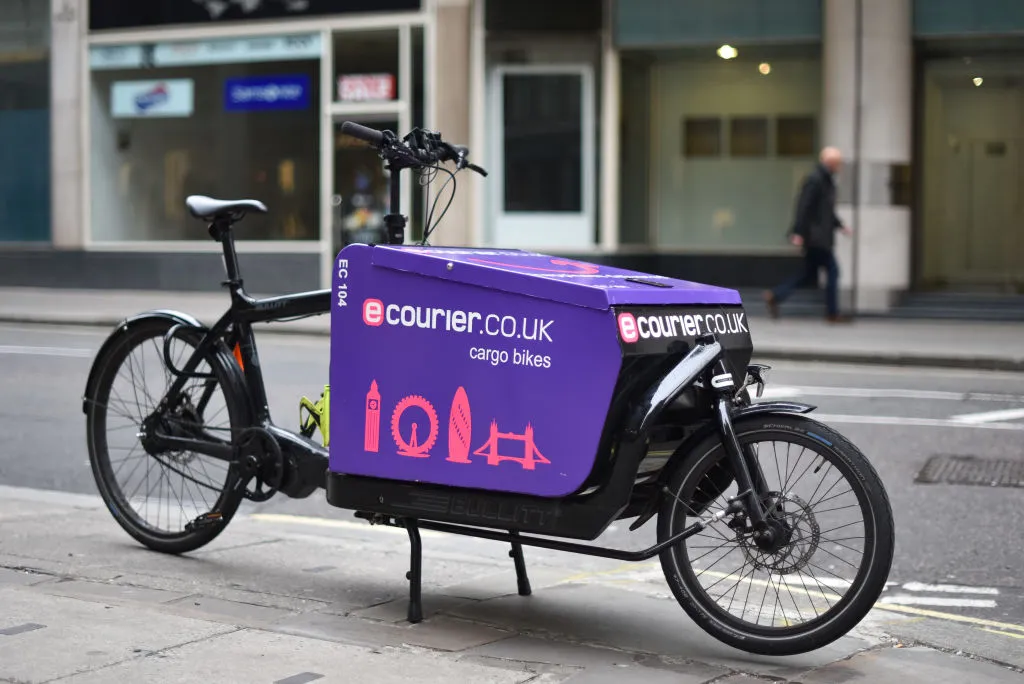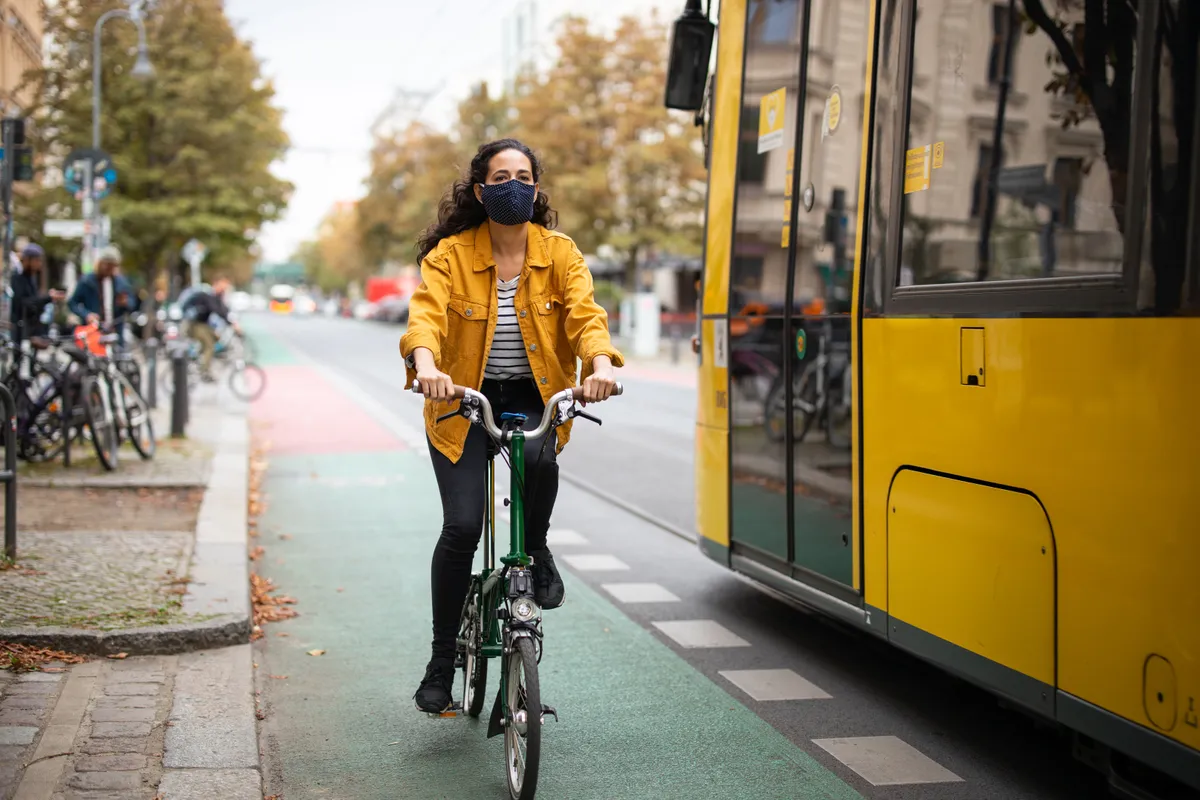The government’s revised net zero strategy has big plans for electric vehicles, but the lack of cycling, walking and public transport investment is a glaring omission.
Released last week and titled Powering Up Britain, the plan stipulates car manufacturers’ sales must include at least 22 per cent electric cars and 10 per cent electric vans by 2024, with over £800 million of capital funding made available to support the transition.
The government also announced £350 million of investment in electric vehicle charging infrastructure.
Moving away from combustion vehicles is a necessity – transport makes up 27 per cent of the UK’s emissions, and 90 per cent of that figure comes from road traffic.
Transitioning to EVs can play a role in getting that percentage down.
However, prioritising these vehicles over buses, trains, walking and cycling will prove to be yet another roadblock on the already obstructed path to net zero, while also hindering people’s mobility and general health.
The impact of manufacturing

Electric vehicles require energy-intensive manufacturing and the life-cycle emissions of these vehicles are far higher than bicycles.
Making an electric car can produce between 7 and 13 tons of Co2, whereas Trek’s 2021 Sustainability report says one of its electric bicycles results in around 165kg Co2e.
Manufacturing a non-assisted bike produces even less C02e in production, at roughly 134kg.
In use, bicycles require far less energy than electric cars to power, and ebikes can even be more energy efficient than non-assisted bikes.
Bicycles won’t replace all car or van journeys, but they could probably replace a lot more than you think.
In 2020, 71 per cent of car journeys in the UK were under five miles and 25 per cent were under 1 mile. The right investment to make it easier and safer for people to travel by bike (or by foot) could go a long way in helping to reduce emissions.

An Energy Saving Trust report says 33 per cent of all urban deliveries could be completed by cargo or e-cargo bikes.
As an example of the potential impact the switch could make, the report points to Zedify, a delivery company with 69 cargo bikes and five electric vans in its fleet of vehicles. In one year, this fleet of vehicles is estimated to have saved more than 426 tonnes of CO2 emissions, showing the potential of electric vans, but particularly e-cargo bikes.
Electric vehicles cost a lot of money and prioritising them for private use makes emission reduction on a personal scale an activity of the rich: not everyone will be able to afford to make the change to one of these vehicles.
Of course, ebikes and bicycles in general aren’t that cheap. But they are much cheaper than cars and, as CyclingUK has said, the UK government should follow the lead of the USA in proposing ebike subsidies.
This is also why public transport should be integral to reducing transport emissions alongside cycling and walking.
Investment in public transport over private electric vehicle ownership would mean disadvantaged groups aren't left behind.
It would also help achieve the United Nations Sustainable Development goal 10, which says we should “progressively achieve and sustain income growth of the bottom 40 per cent of the population at a rate higher than the national average”.
The bigger picture

There is the question of resource allocation, too. As Thea Riofrancos, professor in political science and author of A Planet to Win: Why we need a Green New Deal, has argued, if we’re going to be extracting lithium and cobalt for batteries to help the move away from hydrocarbons, we should regulate the use of these minerals to benefit the greatest number of people.
These materials should be used for small electric vehicles such as bikes and public transport rather than private cars, enabling more mobility for less mining.
Powering Up Britain’s emphasis on electric vehicles comes as no surprise. There was little talk of other modes of transport at COP26 in Glasgow and the government recently cut £200 million of active travel funding, leaving local authorities to fight over a far smaller pot of money for cycling and walking infrastructure.
But this dire oversight will come back to bite us, emissions aside. The government’s lack of action around active travel will deprive people of the health benefits – physical and mental – associated with walking and cycling. It will also mean people who can’t use or afford private electric vehicles may struggle to travel safely or sustainably.
By ignoring cycling, walking and public transport, the government has missed the bigger picture in more ways than one.
